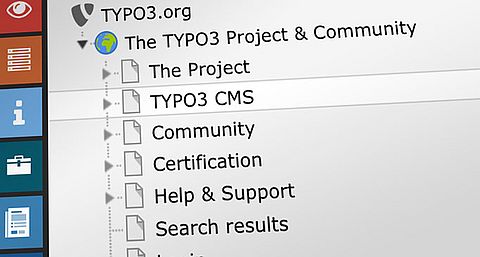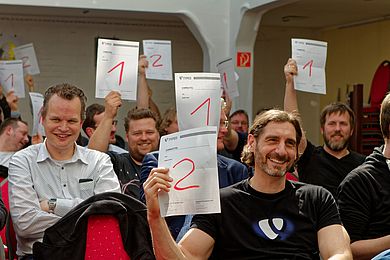Art. 18 Election procedure and term of office
The term of office for the association’s board is two years according to the financial year or calendar year. Only members of the association can be elected as members of the board. Re-election is permitted. The board has a maximum of 9 members.
At the end of the term of office, elections for the association’s board are held during the general assembly. The first time the board is elected, the elected members select 4 board members whose term of office is only one year in order to ensure continuity in the board (meaning new elections are held each year).
Every association member may nominate themselves or another board candidate for election; nominees have to confirm their candidacy in advance. Written notice of proposed board candidates must be submitted to the board no later than during the general assembly. The association’s board may also be elected prior to the general assembly by online voting. In this case, the members must be granted a reasonable advance term for the announcement of board candidates.
The outcome of the election is decided by counting the votes received by the candidates (in case of tie votes for excess candidates, there shall be a second ballot; in case of another tie vote, the decision is made by lot). The election and assignment of functions (president, vice president, actuary and treasurer) are performed during the general assembly before the start of a new term of office by a simple majority of the attending board members.
The candidate for the office of president must have been a member of the association’s board for at least one year, otherwise the term of office is limited to one year.
The termination of association membership also terminates the office of an association board member.
In case of by-elections during the term of office, the newly elected association board member completes the predecessor’s term of office. Instead of by-elections, the association’s board may also ask the next ranking candidate from the previous election whether they want to move up. If more than three association board members step down during a term of office, new elections are held for all resigned positions during an extraordinary general assembly.
The association’s board can call new elections for the entire board by a simple majority of the entire board.




